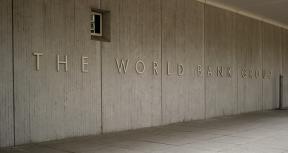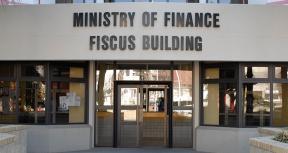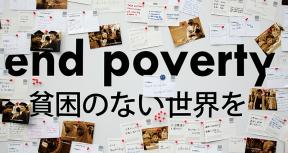Achievements of World Bank Group Strategies
Overall outcomes have been satisfactory in many areas, with some outstanding successes, notably in policy dialogue, especially in tax reform, public expenditure, and subnational fiscal legislation as well as in lending support to Mexico’s major programs for health insurance for the poor (Seguro Popular) and social assistance (Prospera) and cash transfer programs (Oportunidades), climate change interventions, and convening South-South exchanges. Areas of limited success were found in certain IFC (for example, housing finance and affordable housing, wastewater management and renewable energy) and World Bank programs (for example, water and sanitation, capacity to control epidemics). As agreed with the government, the World Bank was not directly engaged in some areas of developmental constraints, such as corruption and crime and violence.
Two pillars, raising productivity and green growth, are rated moderately satisfactory and the other two, increasing social prosperity and public finance and governance, are rated satisfactory.
Overall Assessment
Regarding the four overarching questions addressed by this evaluation, the Bank Group, especially the World Bank, has contributed to the identification of binding development constraints under each pillar through policy notes and extensive knowledge work, but it could have been more present in the national policy debates about overall binding constraints to development.
- The Bank Group contributed to poverty reduction, shared prosperity, and inclusive growth, with its interventions in poor states and support to well-established national social programs that targeted the most vulnerable.
- A preliminary geospatial analysis of Bank Group interventions in Mexico indicates a degree of congruence between the location of interventions and the bottom 40 percent, especially when knowledge services are considered.
- On leveraging lending, knowledge, and convening power, the World Bank has progressively shifted toward a strong focus on the delivery of advisory services, reflecting strong government demand for access to frontier knowledge, although IFC Advisory Services dwindled in the second period. For the World Bank, this has been key to traction with the government, as evidenced by many fee-based services.
- Knowledge products were of generally high quality and contributed substantively to informing lending operations and to government programs.
- The World Bank has also exercised a strong convening role, including, for example, in collaborating with the external partners (e.g., IADB) in support of the Oportunidades
- Finally, in developing a knowledge base for other Bank Group member countries, World Bank work in Mexico has had externalities not only to other World Bank clients but also beyond the Bank Group.
The overall assessment relies on both the pillar ratings and the evidence on how the program performed under the areas covered by the overarching questions. Although the former place the program between moderately satisfactory and satisfactory (taking into account both IBRD and IFC), the latter tilt the overall assessment toward satisfactory, based on relatively strong contributions by the Bank Group to identify binding development constraints, orient the program toward reducing poverty and improving shared prosperity, and the contributions of the Bank Group Mexico program to the knowledge base of the Bank Group in ways that may also inform its contributions to other clients. The overall outcome of Bank Group support to Mexico over the review period is therefore judged to be satisfactory.
Read more about the overall performance, the World Bank’s contributions, and IEG ratings for each of the 4 pillars:
Lessons for Mexico and Other Middle-Income Countries
Overarching messages emerge from the evaluation, many of which are also relevant for other World Bank clients, especially, other MICs and upper-middle-income countries.
Providing Policy Guidance and Exercising Convening Power
The Bank Group should continue to be active in national policy dialogue, helping the government identify and address binding constraints to growth, poverty reduction and shared prosperity, through its analytical work, and convening power and in line with the World Bank’s twin goals. Based on the present findings, the Bank Group’s Country Partnership Framework with Mexico and other MICs could be cognizant of the potential for such engagement to contribute to innovations in development, identifying benefits from innovation as well as lessons from less successful engagements.
Balancing Detailed Strategy with Flexibility
Flexibility in the World Bank’s engagement was critical to rapidly reprioritize and scale up in a changing environment in Mexico. This will be important in World Bank engagement in all MICs during the time of crisis even as their traditional financing needs may diminish in addition to targeting specific areas aligned with the World Bank’s own twin goals in core lending. The Bank Group can use exceptional lending to catalyze progress in areas of agreed common priority. The World Bank’s adroit shift from high-volume crisis lending to a knowledge-based client strategy, and the inbuilt flexibility in its country strategies that permitted this, could hold lessons for other MICs in similar transitions.
Deepening Subnational Engagement in Lagging Regions
Although the World Bank continues to accompany reform at the federal level, its greatest contributions in Mexico and other MICs will arise at the subnational level, due to widespread differences in regional needs and human development levels and large development needs in lagging regions. Even if high-income status approaches, and Mexico accelerates growth, more emphasis on the subnational level in lagging regions would dovetail well with large regional disparities and high poverty in some states, as well as with the World Bank’s twin goal strategy, though many challenges would still require universal rather than targeted approaches (the human development area is an example). However, difficulties faced in implementing subnational lending engagements can be a major challenge, compounded in the case of Mexico by its institutional constraints on external lending, subnational debt and complex center-state fiscal arrangements. At present, though subnational lending has sometimes encountered roadblocks, the Bank Group has successfully engaged at the subnational level through advisory work. It would be valuable for the World Bank to adopt an explicit strategic approach for subnational engagements, taking advantage of multiple instruments. In this regard, IFC must be credited with a strong frontier-state focus, which could deepen with close collaboration with IBRD and the MIGA.
Strengthening Knowledge and Partnerships
Mexico clearly demonstrates the importance of quality analytical work in MICs with complex needs for highly specialized technical guidance, and the role of the Bank Group as a convener of such knowledge both within and outside Mexico. Many of the knowledge interventions were also directed toward the poorest states as shown by a geospatial analysis of World Bank and IFC interventions. It is critical for the Bank Group to maintain analytical skills while allowing for experimentation and innovation and developing the tools to track outreach and outcomes. Although some of the most effective engagements were in knowledge, convening power, and promotion of South-South learning, currently the World Bank is ill equipped to evaluate or systematically track outreach.
Equally, there is a need for strengthened monitoring and evaluation tools for analytic and advisory activities (AAA). Although programmatic AAA has the capacity to respond swiftly to government requests, maintaining strategic selectivity, especially in fee-for-service, is critical. In the same vein, the World Bank should try to ensure the availability of its RAS outputs at least to World Bank staff, to build its own global knowledge base and rise above the role of private consultancy service. A critical mass of Bank funded-funded strategic knowledge is important for the World Bank to inform policy and its program, especially in unforeseen circumstances.
Trust Funds and partnerships with other developmental partners have significantly furthered the World Bank’s knowledge agenda. At the same time, there is scope for the World Bank to increase its interactions with local partners, think tanks and academia to benefit more from this important pool of knowledge and leverage its internal influence.
Maximizing Effective Private Finance
Crowding in more private finance for higher development impact, especially in the poorest regions, is a challenge the World Bank, IFC and MIGA should take on explicitly—and together. IFC’s engagement in housing construction and finance showed that greater awareness of government policy could better guide IFC investments. IFC’s choice of intervention areas was sound, but its choice of intervention design could be strengthened, due diligence and ongoing oversight could be improved, and risk concentration could be limited, to increase the likelihood of success. Although its focus on frontier states is commendable, IFC’s footprint could be increased with further strategic private partnerships as its successful syndications have shown. IFC could also try to simplify lending requirements in terms of fee structure, insurance requirements, security and environmental and social guidelines, and IFC could also aim to educate more clients in its Green Edge Tool certification.
Recommendations
This evaluation has identified certain areas where there is room for enhancing the Bank Group’s contributions to address Mexico’s development challenges.
Recommendation 1. Ensure the presence of the Bank Group in national policy dialogue, especially in areas that represent binding constraints to Mexico’s development, by explicitly building such areas into the Bank Group program of engagement based on prior analysis.
Recommendation 2. Incorporate flexibility through the explicit adoption of CPS scenarios for exceptional times, adapting to country circumstances while prioritizing the World Bank’s twin development goals.
Recommendation 3. Strengthen subnational engagements in lagging regions with high incidences of poverty, inequality, and constrained social inclusion, and increase attention to gender and indigenous groups.
Recommendation 4. Strengthen knowledge management and effectiveness by ensuring (i) the strategic coherence of programmatic approaches; (ii) the sharing of RAS outputs with World Bank staff and, potentially, a broader public; and (iii) developing a systematic approach to tracking knowledge outputs, outreach, costs, and funding.
Recommendation 5. Develop a program of engagement that maximizes effective private finance for development by leveraging Bank Group synergies and crowding in other private financing sources through more explicit complementary program areas between IBRD and IFC, and more efforts by IFC to crowd in private finance.
World Bank Portfolio by Pillar and Country Program Evaluation Period, FY08–17
During FY08–17, the World Bank had 63 loans and 174 Advisory Services and Analytics (ASA) projects in Mexico. There were also 122 International Finance Corporation (IFC) investments and 13 IFC Advisory Services projects and one Multilateral Investment Guarantee Agency (MIGA) guarantee project. Lending predominated in the first period and advisory services in the second (see table, below).
Knowledge work far exceeded the lending portfolio, with many activities being fee for service (34 in all) and close to half being associated with a programmatic approach. The 28 programmatic activities have 74 associated subactivities. Some 360 World Bank research documents with an explicit reference to Mexico were published in FY08–17; 65 percent (234) are linked to a Bank Group lending or ASA code. IFC Advisory Services in Mexico slowed to negligible levels in the second period.















